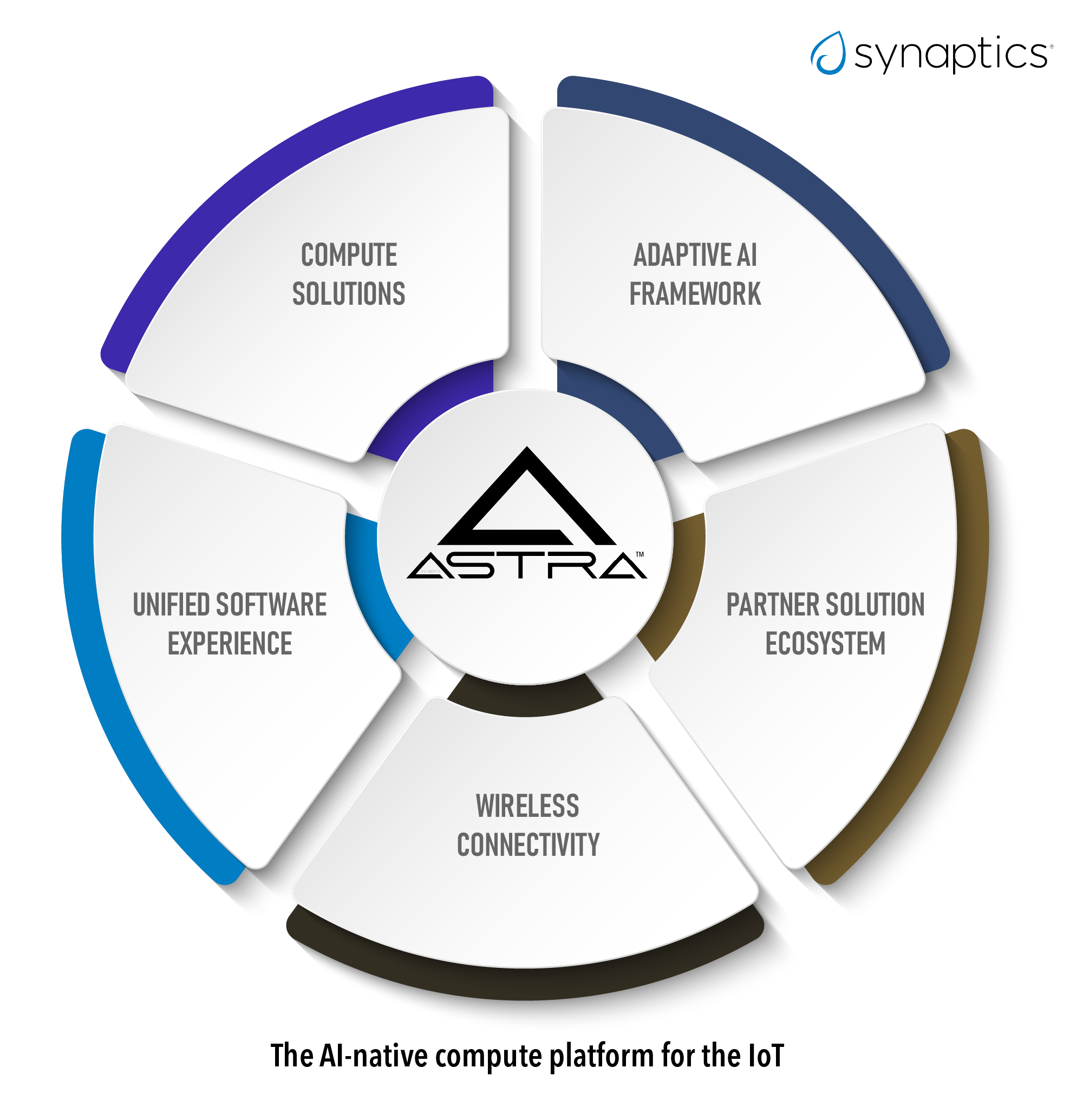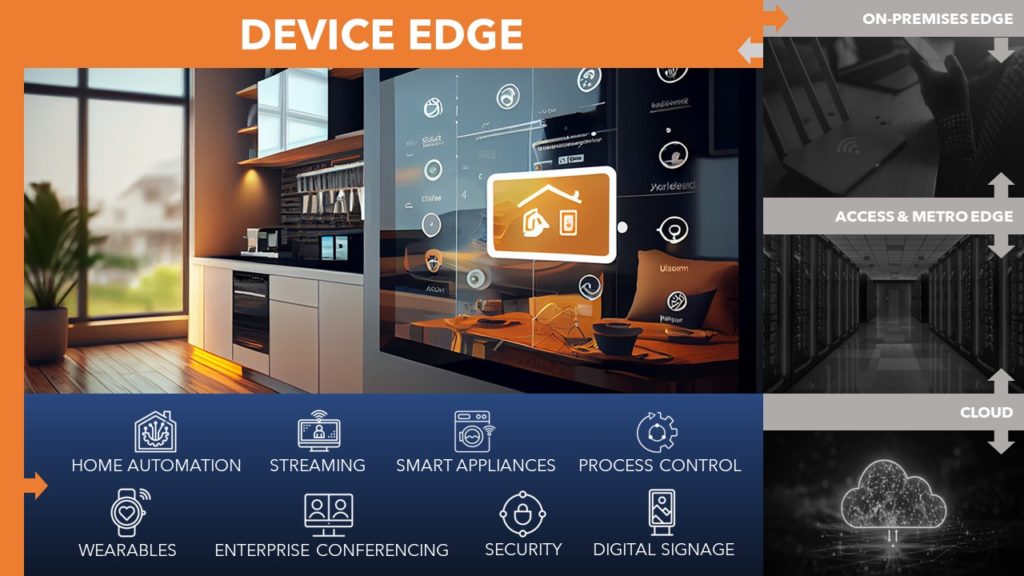This blog post was originally published at Synaptics’ website. It is reprinted here with the permission of Synaptics.
The lines between human capabilities and machine functions are being challenged and redrawn in exciting and extraordinary ways daily. AI technology, now having crossed an inflection point, has brought new legitimacy to the definition of heterogeneous compute, impacting system architectures ranging from resource-constrained devices at the edge to cloud servers. There is an explicit acknowledgment of the need for hardware to adapt and evolve, even when the applicability of AI to workloads has varied between ‘futureproofing’ and ‘differentiation.’ Nowhere have these trends been more conflicted with reality than across the fragmented IoT.
The three essential functions for any IoT system – Sensing, Processing, and Connectivity – all bring widely acknowledged design and productization challenges. Fragmentation due to multi-vendor sourcing, confusion between custom versus general-purpose compute silicon, software interoperability, and uneven investment strategies have delivered patchy growth trajectories across end markets. Even so, the overall market remains highly attractive, with the semiconductor opportunity for the IoT expected to grow at an 11.8% CAGR to reach $269.7B in revenue by 20271. With markets demanding implementation guidelines, best practices, and solution blueprints in the disruptive age of AI, the IoT needs a future-ready platform.
Synaptics, as an established leader in intelligent sensing, display, video, vision, voice, and audio, with best-in-class wireless connectivity and proven AI expertise, is well-positioned to deliver the blueprint for the next generation of IoT compute.
Introducing Synaptics Astra
Today, Synaptics is introducing Astra, the AI-native compute platform for the IoT to address consumer and industrial applications. The following foundational pillars define the Synaptics Astra platform:
Portfolio of High-Performance, Power-Efficient AI-Enabled SoCs
Synaptics’ multi-modal AI-enabled MPUs and range of high-performance AI and connectivity MCUs deliver scalable compute solutions for applications across markets such as home automation, smart appliances, process control, wearables, security, digital signage, streaming, and enterprise conferencing.
Adaptive AI Framework
As ambient and conversational AI enters the IoT and edge-compute design sphere, the attention has shifted from where or when to who can deliver best-in-class, easy-to-use implementations. Synaptics’ open, cross-platform tooling, modeling, and optimization infrastructure is designed to help customers and developers transition from ‘making AI work’ to ‘working with AI.’ Be it raw data from the factory floor, object detection models for advancing home security, or noise suppression, echo cancellation, or voice biometrics for audio, Synaptics AI framework provides effective AI integration paths for production systems. Explore the critical elements.
Unified Software Experience
Synaptics’ comprehensive Board Support Package—supporting Linux, Android, and leading RTOSes—is designed to deliver an open and consistent cross-portfolio experience. It is built on standards-based approaches to firmware-OS interfaces, security, and workload acceleration. With market-specific application profiles, users can count on familiar development environments, allowing for optimized evaluation and decision-making cycles.
Wireless Connectivity Pairing
Synaptics Astra delivers right-sized wireless connectivity and compute pairings with highly integrated solutions for the IoT. These support Wi-Fi, Bluetooth BLE, 802.15.4, and GPS/GNSS and are enabled through standards-based Linux and RTOS Software frameworks and protocols such as Matter.
Broad Partner Solution Ecosystem
Customers can count on taking advantage of Synaptics’ multi-generational experience to build market-ready systems and solution stacks with industry-leading partner companies ranging from ODMs and ISVs to service providers and system integrators. From single-board computers for enterprise and consumer markets, streamers, tablets, displays, and interactive A/V conferencing systems for education and commerce, to compute-enabled connectivity modules, Synaptics SoCs make a diverse array of IoT platforms possible.

Conclusion
With the Synaptics Astra platform, the IoT industry has a new benchmark, blending compute, AI, connectivity, software, and a rich partner ecosystem to unlock opportunities during a period of AI-led innovation. Follow our developments and contact Synaptics sales to learn more this January at CES 2024.
Vikram Gupta
Senior Vice President and General Manager, IoT Processors and Chief Product Officer, Synaptics


